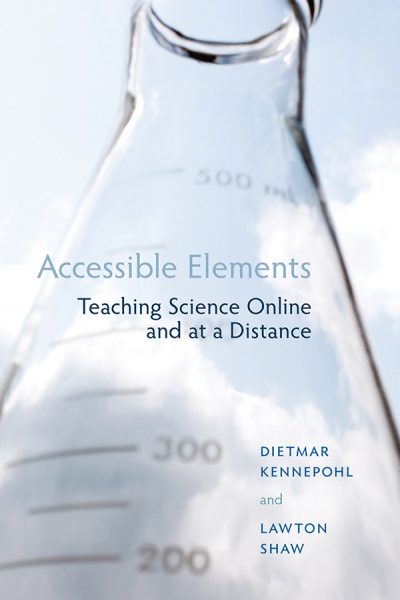Le conseiller pédagogique réflexif Un journal de bord
Michael Power

Accessible Elements informs science educators about current practices in online and distance education: distance-delivered methods for laboratory coursework, the requisite administrative and institutional aspects of online and distance teaching, and the relevant educational theory. Delivery of university-level courses through online and distance education is a method of providing equal access to students seeking post-secondary education. Distance delivery offers practical alternatives to traditional on-campus education for students limited by barriers such as classroom scheduling, physical location, finances, or job and family commitments. The growing recognition and acceptance of distance education, coupled with the rapidly increasing demand for accessibility and flexible delivery of courses, has made distance education a viable and popular option for many people to meet their science educational goals.
Kennepohl and Shaw are to be congratulated on bringing together accounts of new approaches to how we teach science at a distance. The possibilities that ICT provide have revolutionised the field, and this volume brings us up to date with what can be done.
It is thought provoking and challenging, and fills a gap for science teachers who wish to deepen their understanding and add to their repertoire of strategies.
Open Learning
This work is licensed under a Creative Commons License (CC BY-NC-ND 2.5 CA). It may be reproduced for non-commercial purposes, provided that the original author is credited.